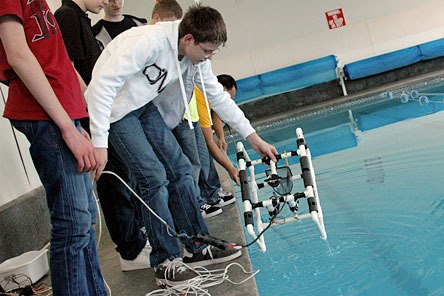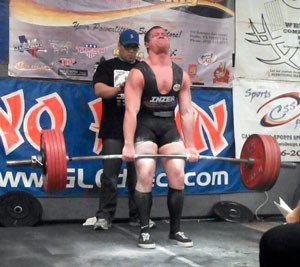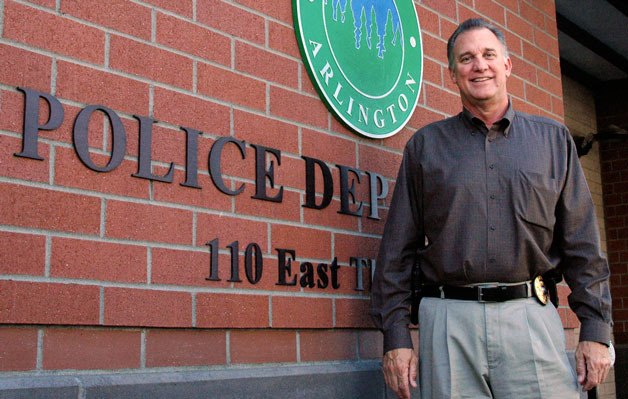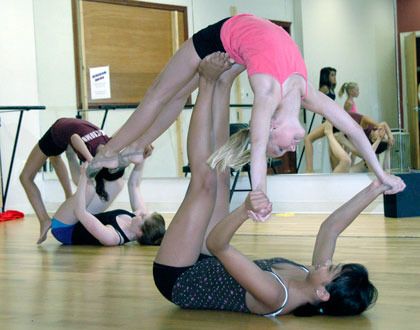ARLINGTON — The four students smiled as Cody Schwans held the team’s spoils — a piece of PVC pipe dripping with chlorinated water.
“How long did that take you to get?” asked Roel Ubungen, Haller Middle School science teacher, from across the Stillaguamish Athletic Club pool.
The students shrugged in unison.
“Remember, you have to bring up six of those in competition,” Ubungen said.
Four small groups of students that are involved in Ubungen’s first-year club have been intermittently testing homemade submersibles, or ROVs, at the pool for the past few weeks, gearing up for a regional competition that takes place in Federal Way on May 8.
The event — called the Marine Advanced Technology Education Center’s Pacific Northwest Regional Challenge — will require the students to put their creations to the test.
“There’s a lot of research being done under the sea these days, with submersibles and scientists collecting samples on Loihi, an undersea volcano in Hawaii,” Ubungen said. “We wanted to see if we could get some students interested in seeing what’s happening in real life.” About 15 students – all divided into groups of four — have been getting a glimpse at just how much work is required to build remotely operated vehicles.
The challenges not only require students in various age ranges to construct machines that can be maneuvered underwater. Those vehicles must also be able to collect “samples,” or in the Haller students’ case, extra pieces of PVC pipe left over from their creation.
The process can be difficult, Haller student Josh Rodriguez said. The ROV challenges are timed, requiring the vehicles to move quickly and efficiently.
Judges evaluate teams’ submersibles based on their performances.
“The most challenging part was trying to balance the weight and get the air to release,” said Rodriguez, whose team includes fellow Haller students Tyler Hering, Schwans and Rodriguez’s brother, Zach. “It’s all the technical stuff that’s hard.”
The foursome’s creation, made mostly of PVC pipe and electrical tape, was on display during a recent test session at the athletic club.
Holding a pre-constructed remote control, Zach Rodriguez pushed switches on a controller to control individual propellers on the submersible. Using a steady hand, Rodriguez lowered the ROV into the water and collected the pieces of pipe that were scattered at the pool floor.
“It can be tough because there are two props facing backwards, so if you want to turn, it’s like controlling a tank,” Josh Rodriguez said.
Until the competition next month, the students will continue to meet after school when they can to test, evaluate and modify their creations at the Stillaguamish pool.
Because the Rodriguez brothers’ mother, Kathy Rodriguez, is the pool director at Stillaguamish, Ubungen’s students have been able to reserve pool space to practice their underwater endeavors.
“We would have had to use the YMCA or hotel pools,” Ubungen said. “Now, we have this wonderful connection with this pool.”
During the regional challenge, Haller’s four teams will be going up against schools from Bothell, Freeland, Mount Vernon, Gig Harbor, Seattle, Woodinville and Kent.
“We’ve never seen any of these teams in action,” Hering said. “But we’ve seen some of their designs. Some of them look like space ships. Usually the simple design is the best.”







